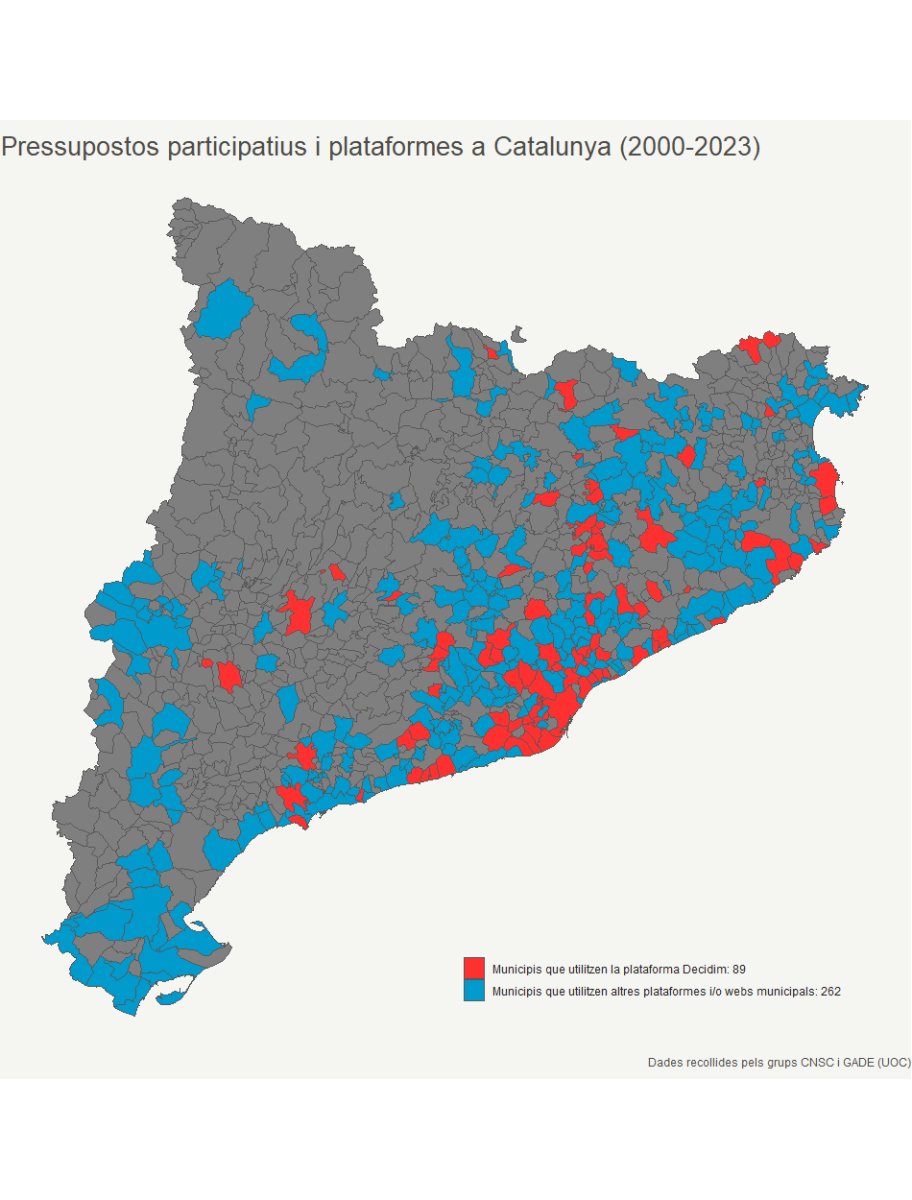Last Thursday 15th February, the project team attended the seminar in the framework of the research “Evaluation of participatory budgets in Catalonia: satisfaction, problems and effects on political trust and legitimacy”.
It was a meeting point with 8 research groups to share the first findings of our projects. All the initiatives have been funded by the Directorate General for Good Governance, Innovation and Democratic Quality through the DEMOC call for proposals. Rosa Borge, main researcher of the project presented some of the initial findings, of which the following highlights stand out:
– 351 municipalities have implemented participatory budgeting initiatives between 2000 and 2023, 89 of them through the Decidim platform. Of these municipalities, 52.4% are in the province of Barcelona, where Decidim has had its main expansion.
– The adoption of participatory budget projects with Decidim has two important growth waves in 2017-2018 and 2021-2022, although growth partially freezes in municipal election years.
– We identify some preliminary variables that may be relevant in the adoption of these participation policies, such as the colour of the mayor’s office, as well as conflict factors that may be related to discontinuity or adoption.
– The level of participation in initiatives is between 2.9% and 3.8% of the total population, but the distribution of participation is uneven. Smaller municipalities sometimes have higher levels of participation.
– 53 municipalities have at some point carried out evaluation and citizen satisfaction surveys. Generally speaking, there are low response rates with a median of 0.18%. However, among the respondents there are generally rather positive assessments.

In the coming months, case studies will be carried out in specific municipalities to understand some of these findings in a more complex way. In some of these municipalities, participant observation of deliberative workshops and interviews with proposal promoters will be carried out. Pre-post surveys will also be conducted to identify citizens’ assessment of general aspects of the process related to other variables such as political attitudes.

